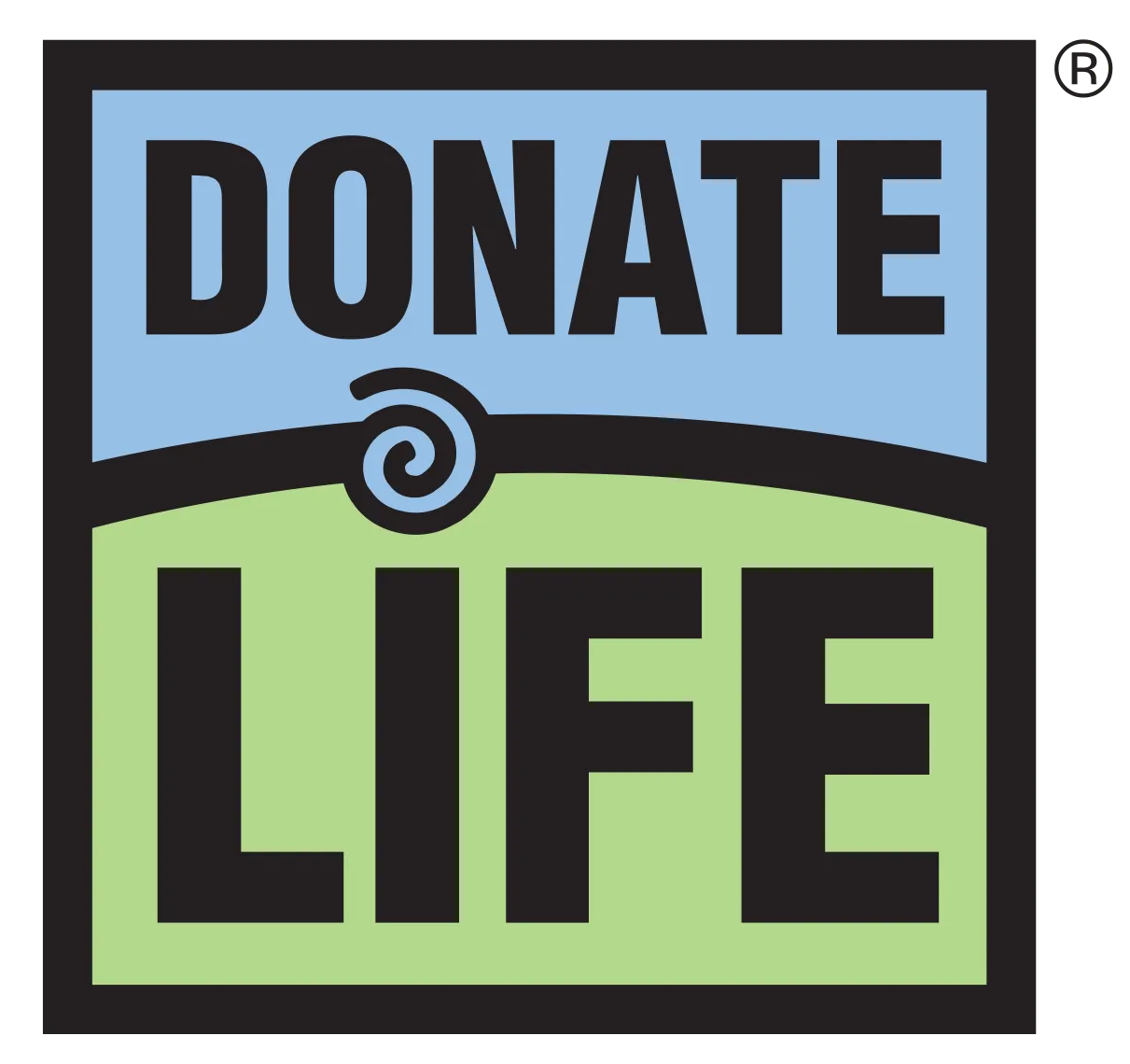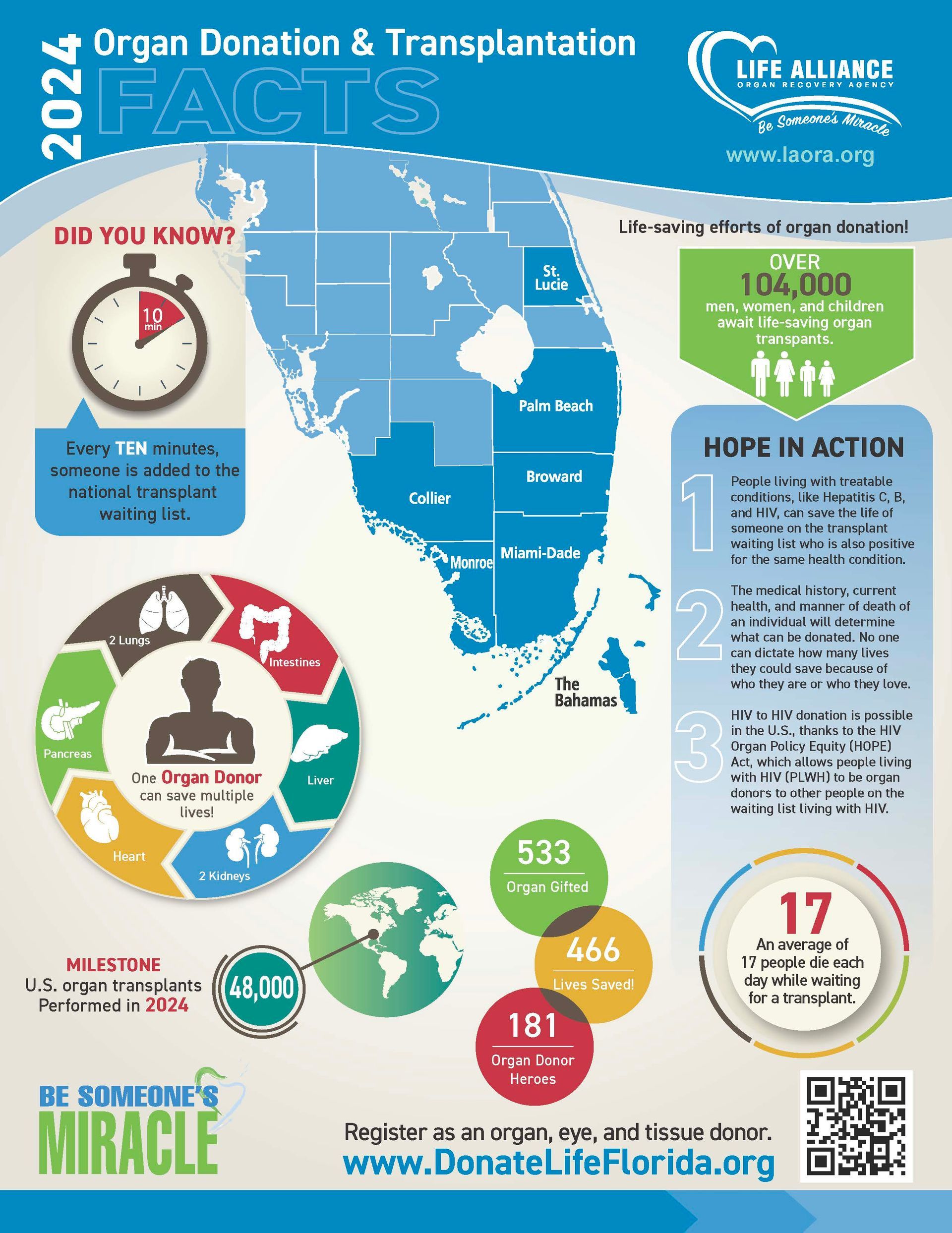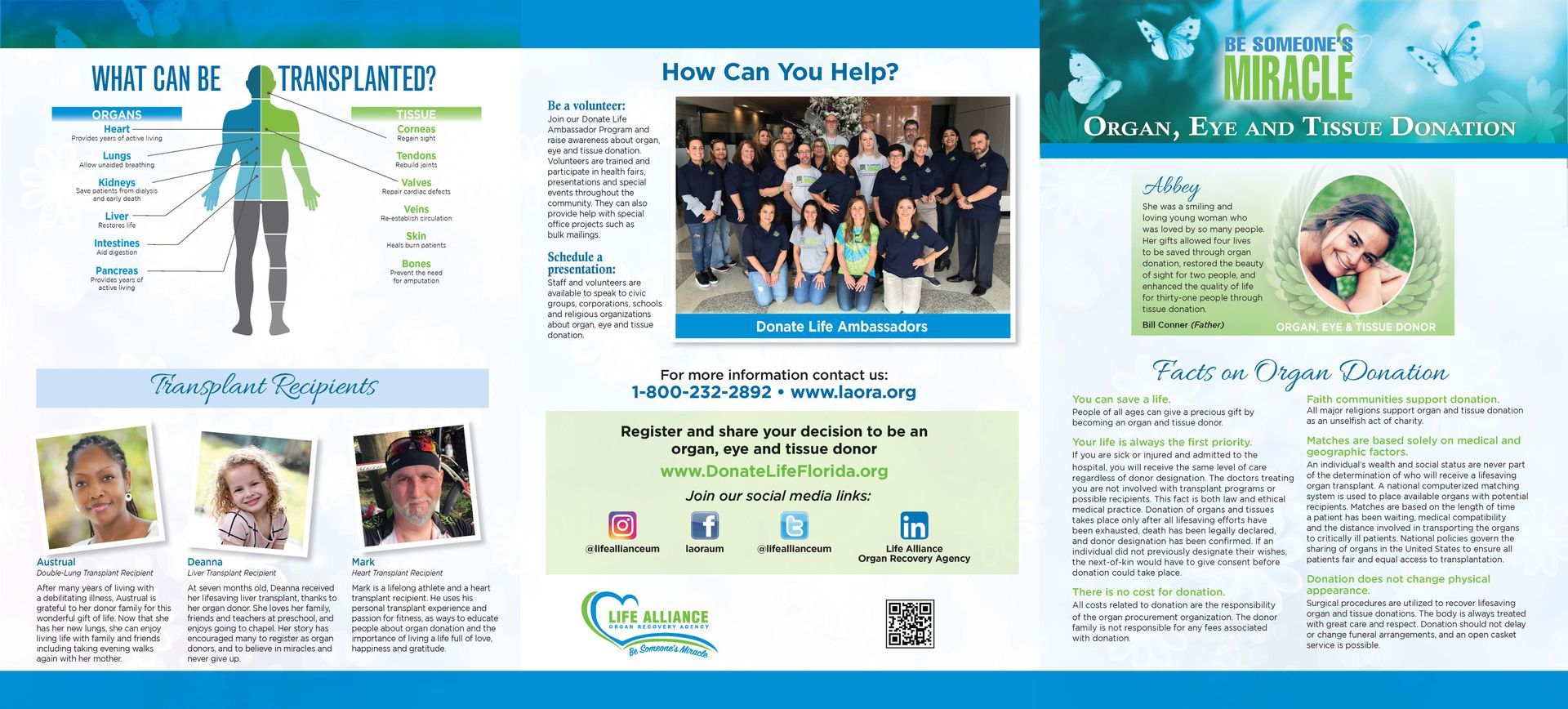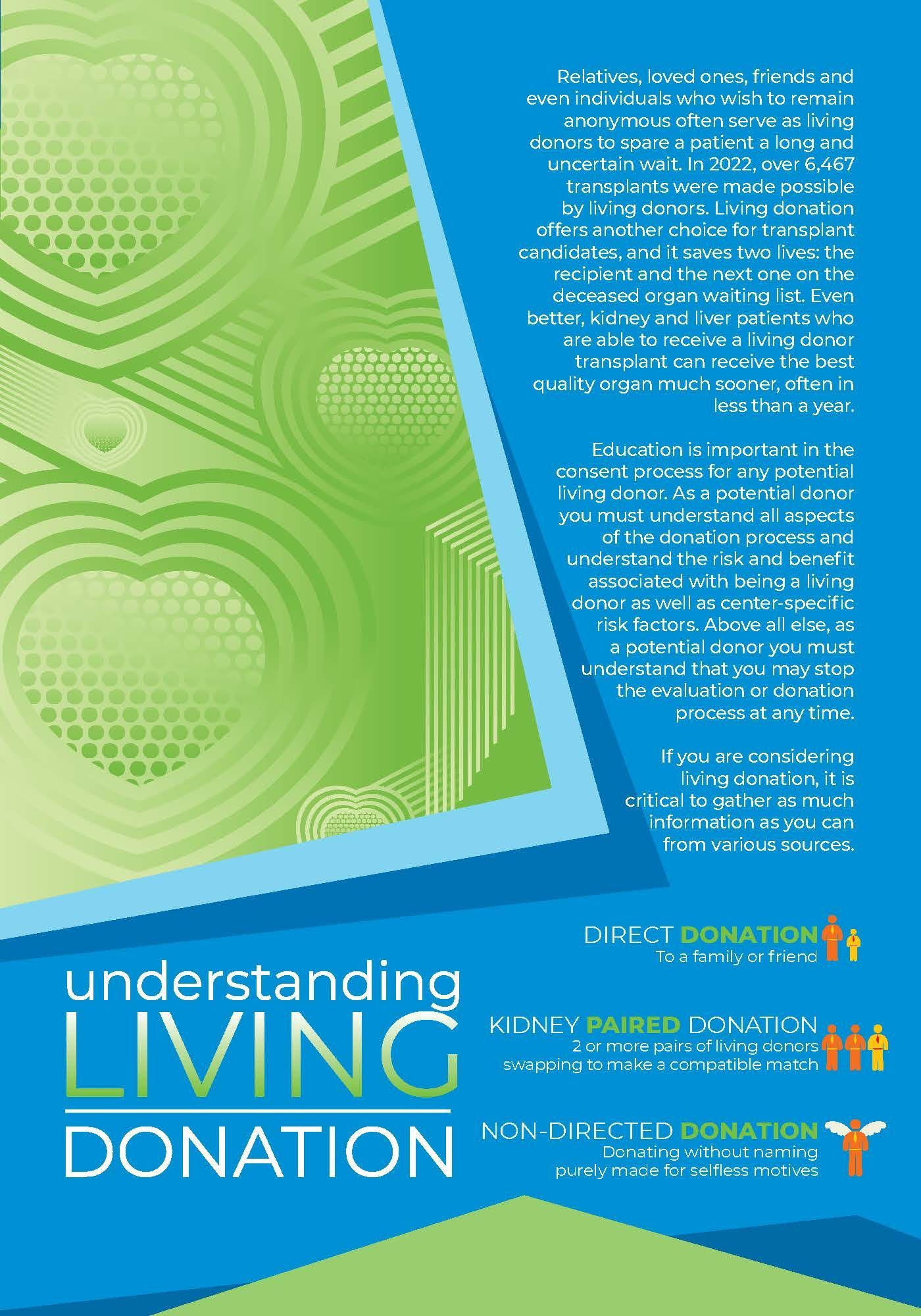Donation Statistics
Vanessa V., Fiance of Steven, ORGAN DONOR HERO
Currently, there are more than 100,000 people on the national transplant waiting list, of which over 5,000 live in Florida.
That number continues to grow daily. Of that number, over 4,000 are waiting for a new kidney.
The HIV Organ Policy Equity Act (the HOPE Act), signed into law on November 21, 2013, calls for the use of organs from HIV-positive donors for transplantation into HIV-positive candidates under approved research protocols. This Act has given hope to more individuals to see a sister’s birthday, celebrate a graduation, and spend another holiday with their families.
Three years after the implementation of the HOPE Act, transplant opportunities for HIV-positive candidates willing to accept organ offers from HIV-positive donors continue to rise.
Transplants allocated through the HOPE Act have more than doubled over last year. Organs from donors that initially test positive for HIV have been transplanted into HIV-positive recipients since 2016; 50 of them in 2018. This indicates that more and more HIV-positive people are becoming aware that they can leave the legacy of life through organ donation.
Minorities and Donation
End-stage renal disease (ESRD), a very serious and life-threatening kidney disease is far more common among certain ethnic groups. Hispanics and Asian-Americans are three times more likely to develop this condition. African Americans are twice as likely to suffer from this illness than Caucasians.
Certain diseases of the heart, lungs, pancreas and liver are also more common in minority communities. These include hypertension among African Americans and diabetes among Hispanics. These diseases damage organs, often leading to the need for transplantation; the only way for a person to survive. A shortage of African Americans donors makes it difficult to find a well-matched kidney for minority patients. Transplantation works better between people with the same ethnicity/race since genetic similarities are usually stronger within persons of the same group. Although it is possible to have a successful transplant between a donor and a recipient of a different ethnicity/race, when members of a specific minority community fail to donate, it results in longer waiting periods and fewer transplants for those within their group.
If you have any questions, don't hesitate to contact us.
We are here to help you!
Florida’s Organ, Eye & Tissue Donor Registry
In 2008, the State of Florida approved legislation that allowed individuals to begin documenting their donation decisions online.
To designate your wishes as an organ and tissue donor, please visit www.donatelifeflorida.org. Joining the online organ and tissue donor registry allows you to create your own profile, document your wishes in detail, and communicate those wishes to family and friends as part of the registration process.
If you have already designated your wishes at your local driver license office, you are still encouraged to create your own profile at www.donatelifeflorida.org. Doing so allows you to not only ensure your wishes are documented in detail (i.e., limitations), but it also allows you to update those wishes at any time.





